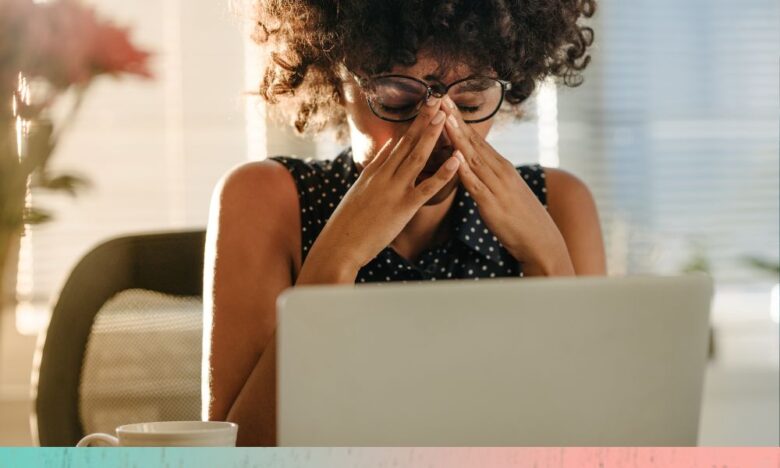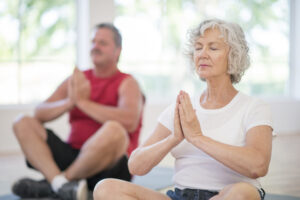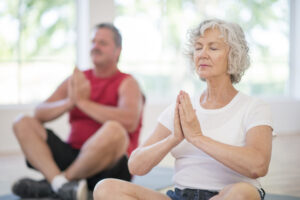When life gets tough, it’s normal to feel stressed and anxious. But if these emotions linger for too long, they can damage your physical and mental health. The good news is that there are many natural ways to relieve worry and anxiety and feel better and calm. These techniques not only work immediately, but if you practice them regularly, they can also help you manage stress better in the long run. This article covers some natural ways to manage worry and anxiety.
Deep Breathing Exercises
One of the simplest and most effective ways to manage worry and anxiety is deep breathing. By focusing on your breath, you activate your parasympathetic nervous system, which makes you feel calm. Deep breathing can slow your heart rate, lower your blood pressure, and calm you down.
Find a quiet place and lie down or sit comfortably. Inhale deeply through your nose, allowing your belly to expand as your lungs fill with air. Hold your breath for a moment, then exhale slowly through your mouth. This will help you relax. Focus on the sensation of your breath moving in and out of your body and repeat this for a few minutes. Taking a few deep breaths each day can help you feel less anxious and calmer when you’re stressed.
Meditation and Being in the Present Moment
Meditation and mindfulness can help you focus on the present moment and let go of anxieties about the past or future. Research shows that these activities can reduce stress, help you better manage your emotions, and improve your overall well-being.
Find a quiet place where you won’t disturb anyone. Stand with a straight back and your hands on your knees or lap, and get comfortable. To calm down, close your eyes and take a few deep breaths. Focus on your breathing, a phrase, or an image that makes you feel better. If your mind wanders, bring your attention back to your breathing or chant slowly. Practice for a few minutes at first. As you get better at it, you can gradually increase the time you practice.
You can also practice mindfulness at different times throughout the day, focusing on how you feel while eating, walking, or even washing dishes. The key is to be present in the moment without judging or thinking about other things.
Get active and move
Regular exercise is one of the best ways to manage anxiety and worry. Endorphins are natural feel-good chemicals that lower stress levels. They also help regulate stress hormones like cortisol, making you feel more relaxed.
Activities like walking, running, cycling, or swimming can improve your heart health and well-being. Aim for at least 30 minutes of moderate exercise most days of the week. Exercise can also reduce inflammation, improve your sleep, and boost your energy, which can make you physically and mentally healthier.
Progressive muscle relaxation
Progressive muscle relaxation (PMR) is a method of resting and then tensing different muscle groups in your body. This can release physical tension built up by anxiety and tension.
First, focus on your feet. Tense your foot muscles for a moment, then relax and let them rest. Simultaneously, tense your legs, thighs, abdomen, hands, arms, shoulders, neck, and face for a few seconds, then relax. Notice the difference between how tense and relaxed each muscle group is. Some people suffer from excessive anxiety, which can cause tension in the neck, shoulder, and head muscles. PMR can help these people.
Uses of Essential Oils and Aromatherapy
Aromatherapy uses scent to improve physical and mental health. Some essential oils, such as sandalwood, lavender, and chamomile, can help you calm down and reduce stress.
Diffuse a few drops of essential oil to fill a room with a wonderful scent. To relax, add a few drops of essential oil to water. You can also mix essential oils with a carrier oil and apply them to your temples, wrists, or neck. Aromatherapy can instantly calm the mind and body, making it a great addition to any stress-relieving practice.
Get Outside
Research shows that being in nature can reduce stress and anxiety in several ways. Woods, parks, and even your own backyard are natural places that can help you relax and clear your mind.
Take a walk in a nearby park or forest. Being outside in the sunshine can help you produce more vitamin D and feel better. “Forest bathing,” or being fully immersed in the sights, sounds, and smells of a forest, can help you feel better and reduce stress.
Support and Socialization
Communicate with them by phone, video chat, or in person. Find activities or groups that align with your interests to meet new people and make friends who can help you. Don’t be afraid to ask your friends and family for help when you’re stressed. They might be able to lend a listening ear, offer advice, or simply provide calming company.
Healthy Diet
Your diet directly affects how you feel and how stressed you are. A balanced diet, rich in minerals, vitamins, and healthy fats, can help manage your blood sugar and keep you feeling calm. Avoiding too much coffee, alcohol, and sugar can also help prevent increased anxiety.
Whole grains, sweet potatoes, and beans are examples of complex carbohydrates that help keep your blood sugar levels stable and give you consistent energy. Omega-3 fatty acids help maintain a healthy brain and reduce inflammation. You can find them in oily fish like salmon, walnuts, and flaxseed. Leafy greens, nuts, seeds, and dark chocolate are all high in magnesium. Foods rich in magnesium help relax your muscles and nerves and give you a sense of calm.
Conclusion
Anxiety and stress are normal responses to the challenges we encounter in life, but chronic stress can seriously affect our physical and mental health. You can effectively manage stress and reduce anxiety by incorporating natural therapies into your daily routine, such as deep breathing, meditation, exercise, aromatherapy, and spending time with others. These activities not only make you feel better immediately, but if practiced regularly, they can also help you become more resilient to stress over time, leading to long-term well-being and a happier, healthier life.




